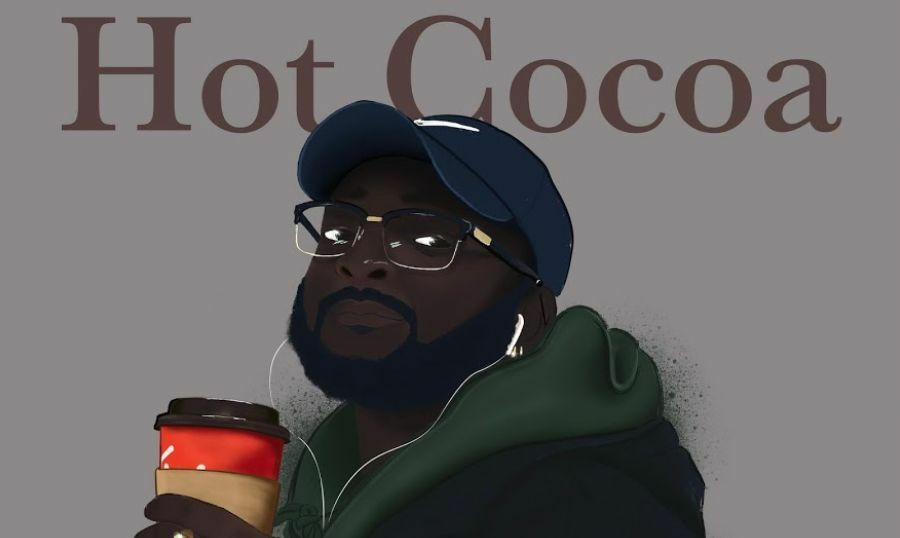The precarity of the gig economy is reason enough for a Universal Basic Income, and that reality is made even more clear 10 months into the pandemic, as we realize that it has been the artists who have seen us through. It is these artists who deserve special thanks for their selfless creativity.
On January 31st, 2021, Toronto artist Levyi-Alexander Love released his first single on Spotify, “Hot Cocoa.” The song is a flannel blanket, encouraging us to put down our armour and relax into where we are in our lives. Love’s voice guides us toward understanding ourselves; to find out who we really are in confinement while reminding us we aren’t alone. His velvet voice is exactly that...hot cocoa.
The day after the song’s release, I sat down with the artist to discuss the Canadian music scene during this tumultuous moment. I ask him about his experience as a trans-Black man in Toronto before he rhymes off the names of several other musicians from Toronto’s Black trans community. Love and TRuss, another popular Black trans artist, transitioned a few months apart from each other. “He’s well known in the Toronto community,” states Love, before adding, “and MoNa is starting her own studio, so we’re starting to get there in terms of visibility.”
Still, Love finds the question limiting. “I want all of us to be seen as humans collectively rising up as people, regardless of our gender status,” says Love. “I’m impatient with the question because it feels very Othering...I’m not a trans artist, I’m just an artist who happens to be trans.” Though Love appreciates the growing presence of trans artists in the city, they also feel like trans artists are nowhere near where we should be in terms of fame. “I notice that there’s a lot of hetero-patriarchy within the queer community, wherein you see gay representation, but not much in the trans lane,” bemoans Love. I wanted to ask about being a trans artist to give a particular spotlight to the trans community, but what matters most, to both Love and I, is the normalization of trans identities.
Love went on to explain what inspired him to become a singer-songwriter. I asked if he knew about R.I.S.E. (Reaching Intelligent Souls Everywhere), the Scarborough-based hub of super talents. Its founder, Randell Adeji, was nominated for CBC’s Torontonian of the Year award for starting one of the city’s longest-running youth-led initiatives. Since then, Randall has gone on to continue his work as a community leader. It was at one of R.I.S.E’s Monday open mics that Love got his taste for the stage. Love’s older brother, Jordan, was a host at the time, and he was immediately hooked on the energy of the crowd in 2012. “I got my first start at R.I.S.E. in terms of public performing, outside of the church,” Love explains. “That’s where I really started getting into the art scene. First poetry, then singing, which I was really bad at, but kept working on until I found my groove.” He credits transitioning for helping him to find his voice. “I got the opportunity to perform at R.I.S.E’s 416 anniversary show and IG Live, to an audience of between 50 to 60 people, and thanks to Randell and his team, I’ve gotten a lot of opportunities and met some really good friends,” says Love, crediting the organization’s leadership.
Although Love has a passion for performing live, he says that his music is for him – well, his process is for him. “The music is for his soul, but we, the people, are welcome to get our own vibe and meaning out of it,” he explains. After a period of loneliness and depression, Love caught a vibe of his own and wrote the lyrics to a song he saw as manifesting the sort of relationship he wanted to give himself; a love he deserves. In so doing, he has blessed us with a winter hit.
Our conversation revealed we shared the same “favourite part” of his song.
“I know thoughts fill you in the nighttime, so come share your good mornings with me,” Love sings in the very first bar, extending the notes. It’s clear in Love’s personality and music that he’s influenced by an array of good sounds. He cites the talents of Clear Mortifee, a B.C artist whose song “Prophecy of the Morning Dew'' has a high vibrational alternative feel, and Za’kisha Brown’s “Purpose”, whose rapping packages heavy content in unapologetic ways, as music that inspired him to produce his own music. As a Toronto arts fanatic, I loved hearing Levyi-Alexander Love give clout to the Canadian artists who shared energy and power with him.
With such an influx of community to produce his music, I was curious about how Covid has impacted his artistic process, and if he misses gigging. Love prefers to perform at “beautiful, welcoming spaces” such as R.I.S.E and Dead Poet, an open mic show hosted at the Drake Hotel.
Without the ability to perform live, Levy-Alexander made sure to speak humbly about his appreciation for having the time to find stillness. “It has actually given me more time to write and make cool stuff, at least early in the pandemic, when I had more energy,” Love says. “I started recording in September when nobody was in the studio other than my producer, Ras Jomo, and I.”
As any artist knows, it takes a village. Levyi-Alexander Love wants to give a special thank you to...
“Tasmyn Hughes who has been a big fan of Hot Cocoa from day one, Kyle Morgan, whose mom heard “Hot Cocoa” shortly before her passing and inspired Kyle to play the track at her funeral, knowing Love was one of the last artists that she heard during her life. Thank you to Grandma Joyce Johnson whose house is the backdrop of every hit Love has written, Lexi Salt for her emotional availability, Lucid Dexterity who is a dope dude and a dope visual artist who offered up his house, Queen and Nico for masterminding, and Dawn for her Midas touch. There is much creative energy that goes into creating and producing the soul food we binge on, and it is important to recognize that most of this labour goes unpaid and unacknowledged.”
Listen to “Hot Cocoa” on Spotify and be sure to follow this rising star on Twitter and IG: @Sirlevyithe1st_ as well as Facebook: Levyi-Alexander Love.

 By
By 


